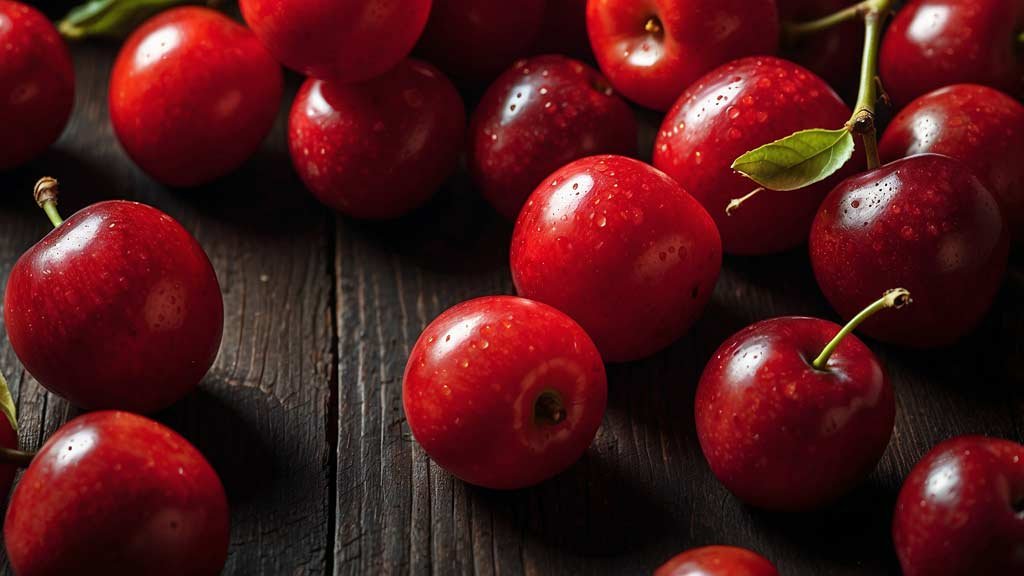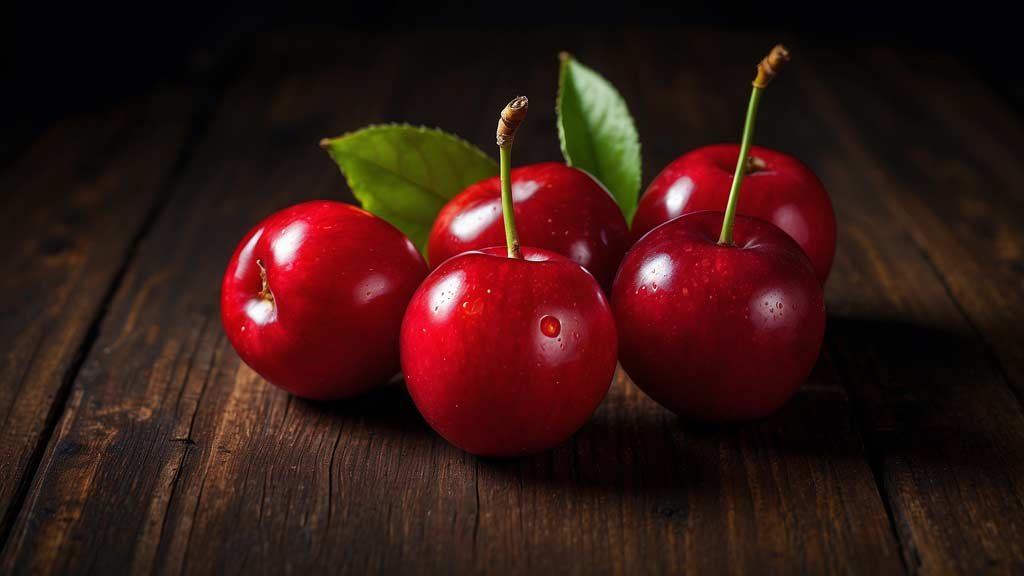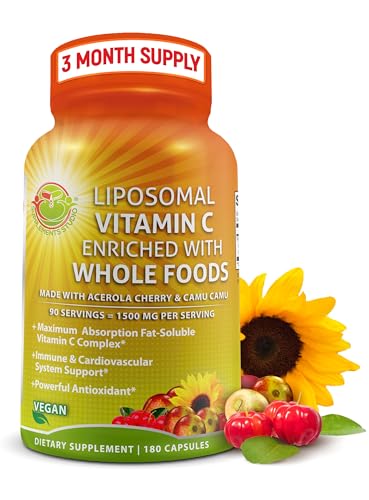The Hidden Gem of the Fruit World
You know the drill: when you’re feeling under the weather, you reach for an orange or a glass of orange juice. It’s the classic go-to for a vitamin C boost. But what if I told you there’s a fruit out there that outshines oranges in the vitamin C department? Enter the acerola cherry.
Native to the tropical regions of the Americas, the acerola cherry, also known as the Barbados cherry or West Indian cherry, is a small, bright red fruit that packs a punch when it comes to nutrition. While it may look like a regular cherry, its nutritional profile is anything but ordinary.
Table of Contents
A Vitamin C Powerhouse
Let’s get straight to the point: acerola cherries are loaded with vitamin C. In fact, they contain up to 50 times more vitamin C than an orange. Just one small acerola cherry can provide more than 100% of your daily vitamin C requirement. This makes it an excellent choice for supporting immune function, especially during cold and flu season.
But it’s not just about the quantity; it’s also about the quality. The vitamin C in acerola cherries is naturally occurring, meaning it’s accompanied by other beneficial compounds that can enhance absorption and effectiveness.
Beyond Vitamin C: A Nutrient-Rich Fruit
While vitamin C steals the spotlight, acerola cherries offer a variety of other nutrients that contribute to overall health:
- Vitamin A: Supports vision and skin health.
- B Vitamins (B1, B2, B3): Aid in energy production and brain function.
- Antioxidants: Including flavonoids and anthocyanins, which help combat oxidative stress.
- Minerals: Such as iron, calcium, and phosphorus, essential for bone and blood health.
- Dietary Fiber: Promotes digestive health and helps regulate blood sugar levels.
This diverse nutrient profile makes acerola cherries a valuable addition to any diet.

Immune System Support
Vitamin C is well-known for its role in immune health. It stimulates the production of white blood cells, which are crucial for fighting off infections. By incorporating acerola cherries into your diet, you can give your immune system the support it needs to keep you healthy.
Skin Health and Anti-Aging
The antioxidants found in acerola cherries, particularly vitamin C, play a significant role in skin health. Vitamin C is essential for collagen production, which helps maintain skin elasticity and firmness. Additionally, its antioxidant properties help protect the skin from damage caused by free radicals, which can lead to premature aging.
Regular consumption of acerola cherries may contribute to healthier, more youthful-looking skin.
Cardiovascular Health
The nutrients in acerola cherries also support heart health. The antioxidants help reduce oxidative stress, which can damage blood vessels and lead to heart disease. Additionally, the vitamin C content helps maintain healthy blood vessels, promoting better circulation and overall cardiovascular function.
Digestive Health
Acerola cherries contain dietary fiber, which is essential for digestive health. Fiber helps regulate bowel movements, prevent constipation, and support a healthy gut microbiome. By including acerola cherries in your diet, you can promote better digestive health and overall well-being.
How to Incorporate Acerola Cherries into Your Diet
Fresh acerola cherries are delicious but perishable, so they may not always be available. However, there are several ways to enjoy their benefits:
- Juice: Acerola cherry juice is a convenient way to consume the fruit’s nutrients. Just be mindful of added sugars in commercial juices.
- Powder: Acerola cherry powder can be added to smoothies, yogurt, or baked goods for a nutritional boost.
- Supplements: Acerola cherry supplements are available in various forms, including capsules and tablets.
When choosing a supplement, look for products that use whole fruit powder to ensure you’re getting the full spectrum of nutrients.

Potential Side Effects and Considerations
While acerola cherries are generally safe to consume, it’s important to be aware of potential side effects:
- Stomach Upset: High doses of vitamin C can cause gastrointestinal discomfort, including nausea and diarrhea.
- Kidney Stones: Excessive vitamin C intake may increase the risk of kidney stones in susceptible individuals.
- Allergic Reactions: Some people may be allergic to acerola cherries or related fruits.
As with any supplement or dietary change, it’s best to consult with a healthcare provider before adding acerola cherries to your routine, especially if you have existing health conditions or are taking medications.
Best Selling Acerola Cherry Supplements
Final Thoughts
Acerola cherries are more than just a tropical fruit; they’re a nutritional powerhouse. With their high vitamin C content and a range of other beneficial nutrients, they offer a natural way to support immune function, skin health, and overall well-being. Whether consumed fresh, as juice, in powder form, or as a supplement, incorporating acerola cherries into your diet can be a delicious and healthful choice.
Remember, while acerola cherries can provide a significant nutritional boost, they should be part of a balanced diet that includes a variety of fruits and vegetables. After all, nature’s bounty is best enjoyed in its full spectrum.
Article Sources
At AncientHerbsWisdom, our content relies on reputable sources, including peer-reviewed studies, to substantiate the information presented in our articles. Our primary objective is to ensure our content is thoroughly fact-checked, maintaining a commitment to accuracy, reliability, and trustworthiness.
- Health.com. (2024). 4 Health Benefits of Acerola and Uses. Retrieved from https://www.health.com/acerola-benefits-8659950
- GetLabTest.com. (2025). Acerola Cherry: The Superfruit Packed with Vitamin C. Retrieved from https://www.getlabtest.com/news/post/acerola-cherry-superfruit-benefits
- Healthline. (2017). Acerola Cherry: Vitamin C, Fruit, Powder, and Benefits. Retrieved from https://www.healthline.com/health/food-nutrition/acerola-cherry
- Nature Research Intelligence. (2024). Acerola Fruit: Antioxidant Properties and Health Benefits. Retrieved from https://www.nature.com/research-intelligence/nri-topic-summaries/acerola-fruit-antioxidant-properties-and-health-benefits-micro-37234
- WebMD. (2023). Acerola – Uses, Side Effects, and More. Retrieved from https://www.webmd.com/vitamins/ai/ingredientmono-608/acerola
- Plant-Based Iron, Iodine, and Mineral Support Using Herbs - January 23, 2026
- Vegan Alternatives to Beeswax and Honey in Herbal Preparations - January 22, 2026
- Alcohol Free Herbal Extracts, Glycerites, Vinegar Extracts, and Teas Explained - January 22, 2026











